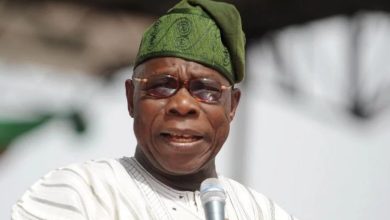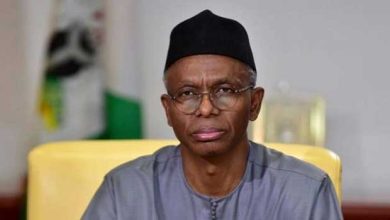News
Journalists, stakeholders task Govt. on land regulations in Delta
Journalists and other Stakeholders have called on Delta government to urgently check the excesses of unauthorised acquisition of lands in most communities across the state to avert famine and family displacement.
The stakeholders raised the observation at a brainstorming event organised by the Publishers of Ndokwa Reporters, a Delta based online newspaper at a formal unveiling of the first edition of the ‘BEL
Dialogue’, a policy and development-focused discussion platform, in Asaba on Thursday.
“This inaugural edition has as its theme, “Development or Displacement: Understanding the Cost of Unregulated Land Acquisition in Our Communities; The role of Government and Traditional Institutions in Safeguarding Community Lands.”
In his opening remarks, the Chairman of the occasion, Rt. Hon. Ossai Nicholas Ossai, said the theme of the dialogue was apt.and urgent.
Rt. Hon. Ossai said: “The theme of this dialogue is not only timely but urgent, because unregulated land acquisition has led to the displacement of many families, loss of livelihoods, and erosion of cultural heritage.
“It is obvious that this dialogue resonates with the raised significant concerns about the impact on our cities, towns and villages, particularly regarding land acquisition and displacement.
According to him, “In many parts of our country, communities are facing the harsh reality of land grabbing, often by external parties, including criminal elements and other strangers.
“This dialogue is therefore, a call to explore the processes for land acquisition, identify best practices, and foster collaboration among government agencies, traditional institutions, civil society, and community members”, he added.
Ossai, a former member representing Ndokwa/Ukwuani Federal Constituency at the National Assembly, further recalled that the land Use Act of 1978 was the primary legislation governing land ownership in Nigeria.
He, therefore, urged the relevant authorities to explore the provisions of the laws and ensure sanity in land allocation and acquisition, particularly since the law vested all land within a State’s territory under the control of the state governor, who holds such lands in trust for the people.
Accordingly, individuals do not have absolute ownership of land, as the State retains the ultimate control, which is structured into ‘Statutory Right of Occupancy’, and ‘Customary Right of Occupancy’.
Hus words: “With Statutory Ownership, the State holds ultimate power over land transactions, and individuals can acquire land in urban areas through leases or grants covered by a ‘Statutory Right of Occupancy’ issued by the state government on behalf of the governor.
“Also, for ‘Customary Ownership’, which relates to lands in rural or indigenous communities where land was typically owned by communities or families, state control was exercised through a ‘Customary Right of Occupancy’ issued by the Local Government Area Councils on behalf of the governor.
“It is important to emphasise that except for landed properties with formal title deeds that predate 1978, all transactions in land that confer title must receive the approval of the State governor through what is called ‘Governor’s Consent’.
“With the Land Use Act in view, we can work together to find sustainable solutions that balance acquisitions for development needs with the rights and interests of our local communities.”
He also urged the discussants to be decisive and convincing in advancing solutions that could address the disturbing problem of reckless acquisitions and grabbing of community lands, and the attendant displacement of local population from their ancestral heritage.
Earlier, the Chief Executive Officer, BEL Media Consult Limited and Publishers of Ndokwa Reporters, Mr. Emmanuel Enebeli, said the event was to reflect and to reaffirm the medium collective commitment to community growth, responsible journalism, and meaningful development.
He also saidthat Ndokwa Reporters, an online newspaper, launch on May 3, 2013 has stood as a pioneering voice, not just in Ndokwa Nation, but across Delta State and beyond.
Enebeli said: “From inception, our mission has been crystal clear: ‘Towards a Better Community Development.
He said, “Our vision remains rooted in using the power of the media to bridge the gap between the governed and those in governance, to inform, to advocate, and to elevate community voices.
“The highlight of today’s event is the formal unveiling of the first edition of the BEL Dialogue. This policy and development-focused discussion platform will become an annual event”, said.
“It is our hope that by the end of today’s dialogue, our discussants and guests will present practical, people-focused policy
recommendations to guide responsible and inclusive development.”
The dialogue between the discussants and the audience is expected to produce a communique at the end.
NAN



